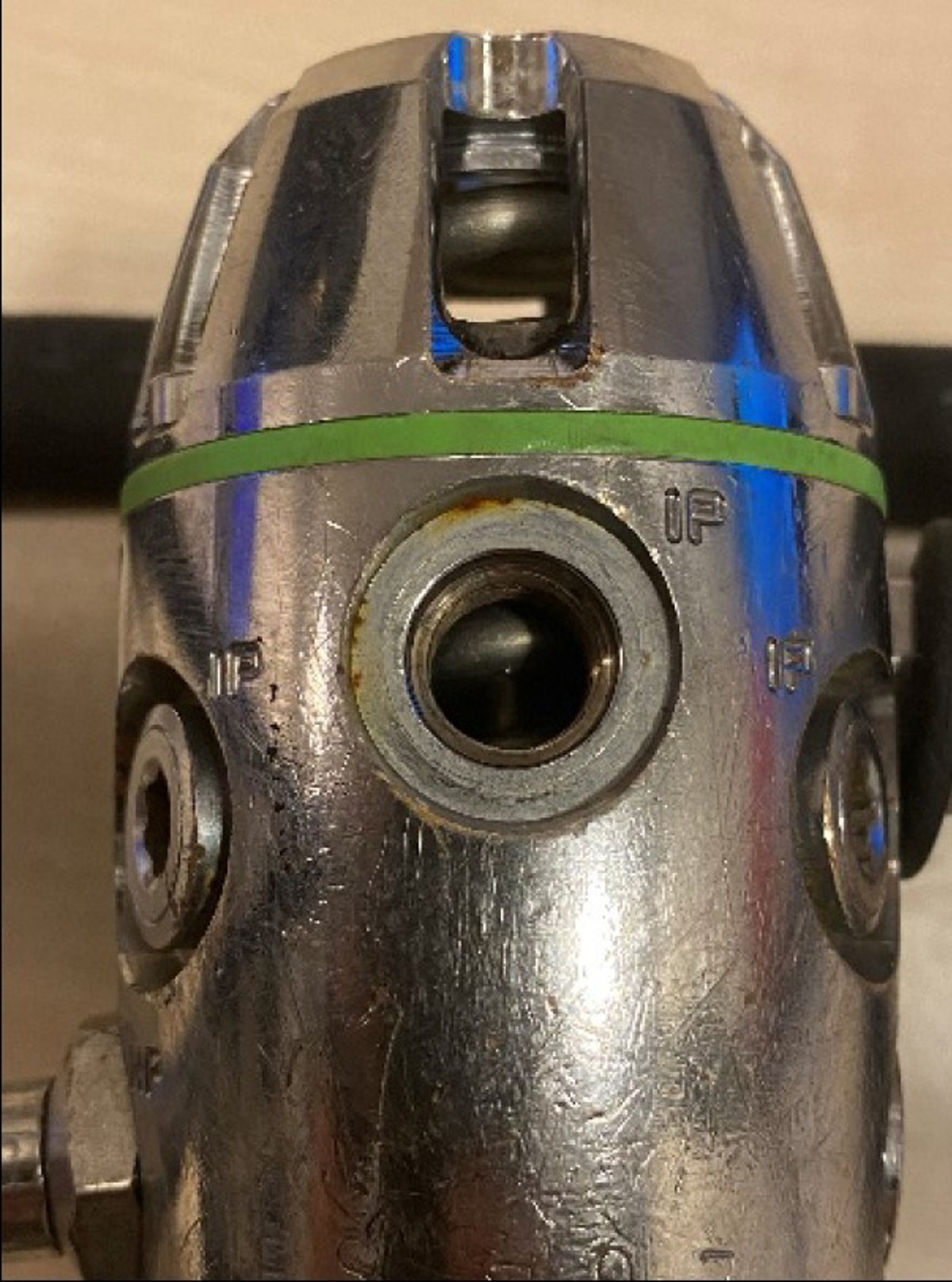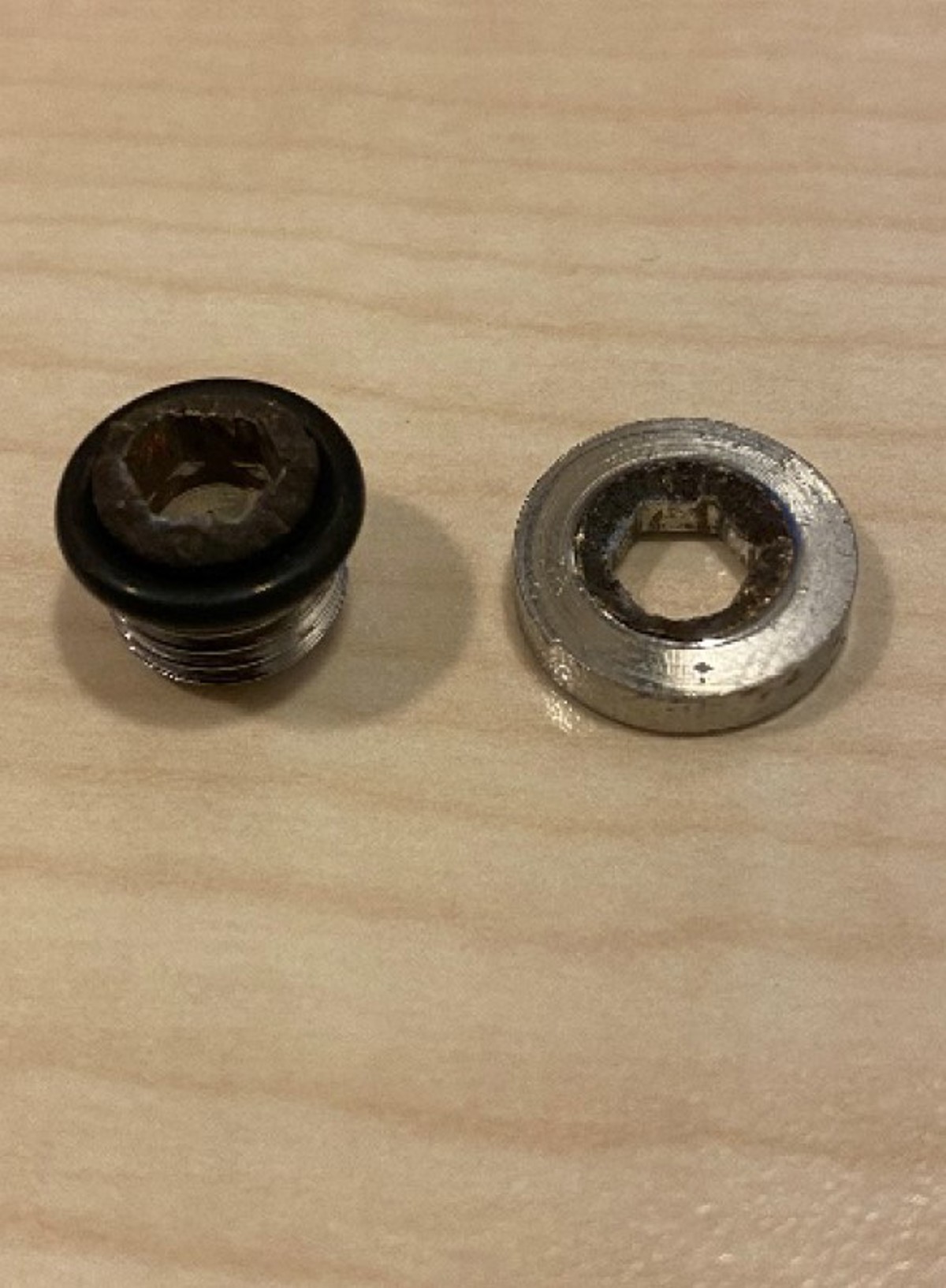Failure of first stage regulator low pressure (LP) blanking cap
- Safety Flash
- Published on 8 November 2021
- Generated on 21 February 2026
- IMCA SF 30/21
- 2 minute read
Jump to:
During a dive, a leak was noted coming from the first stage of diver #2’s regulator on the bail out bottle.
What happened?
Further inspection identified that the low-pressure port blanking cap was found to have failed. The dive was terminated, the divers recovered safely, and the regulator was removed from service.
During the investigation of the regulator there were no signs of damage to the body or any of the associated hoses, fittings or the gauge. The regulator was within its recommended annual service period.
The regulator manufacturer was contacted regarding the shelf life of the blanking screws and recommended O-ring replacements.
Actions
The following actions and recommendations are deemed necessary to manage the risk associated with 1st stage regulator blanking caps.
- Immediate actions:
- Manufacturer's recommendations
- O-rings to be replaced at each service or every two years.
- Confirm torque settings of 2N to be applied to all blanking caps.
- O-rings to be replaced at each service or every two years.
- Diving contractor's actions
- Replace all blanking caps and O-rings on existing in service 1st stage regulators.
- Update work orders to confirm torque settings of 2N to be applied to all blanking caps.
- Replace all blanking caps and O-rings on existing in service 1st stage regulators.
- Manufacturer's recommendations
- Further actions:
- Release as IMCA safety flash.
- Identify and assess condition of all 1st stage regulators that have been in service in excess of 10 years for possible replacement.
- Release as IMCA safety flash.
Members may wish to refer to:
- IMCA D018 Code of practice for the initial and periodic examination, testing and certification of diving plant and equipment
Related Safety Flashes
-
IMCA SF 26/21
22 September 2021
-
IMCA SF 19/19
12 August 2019
-
IMCA Safety Flashes summarise key safety matters and incidents, allowing lessons to be more easily learnt for the benefit of the entire offshore industry.
The effectiveness of the IMCA Safety Flash system depends on the industry sharing information and so avoiding repeat incidents. Incidents are classified according to IOGP's Life Saving Rules.
All information is anonymised or sanitised, as appropriate, and warnings for graphic content included where possible.
IMCA makes every effort to ensure both the accuracy and reliability of the information shared, but is not be liable for any guidance and/or recommendation and/or statement herein contained.
The information contained in this document does not fulfil or replace any individual's or Member's legal, regulatory or other duties or obligations in respect of their operations. Individuals and Members remain solely responsible for the safe, lawful and proper conduct of their operations.
Share your safety incidents with IMCA online. Sign-up to receive Safety Flashes straight to your email.

